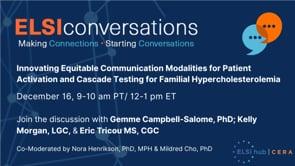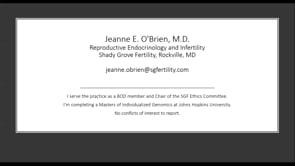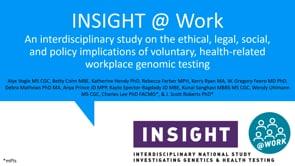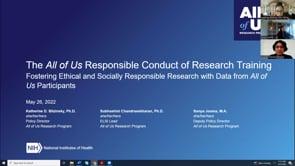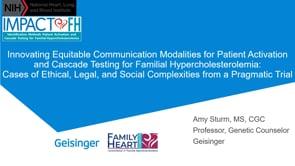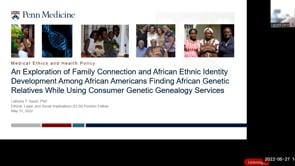Investigating an Ethos of Duty in Precision Medicine Research Calls for Minority Participation
ELSIcon2022 • Pre-recorded Paper
- Rachel Bailey, ABD - University of Georgia, Graduate Student Teaching Assistant:
Investigating an Ethos of Duty in Precision Medicine Research Calls for Minority Participation
A rhetorical utility of identity may provide a novel method of inquiry for bioethics research. To increase diversity of Precision Medicine (PM) research data, the National Institutes of Health (NIH) targets minorities to participate in the All of Us Research Project by promoting public awareness of the program in minority communities. However, bioethical scholars Kadija Ferryman and Makaela Pitcan question the efficacy and ethics of PM, noting bias in datasets and bias in outcomes despite efforts to collect diverse data (2018). Further, a 2013 study by Cox and McDonald finds that research subjects respond to a sense of duty or social responsibility. A 2021 study by Ratcliff et al suggests PM research participants are willing to participate despite uncertainty about research purpose and use of their data, corroborating the idea that research subjects participate in genetics research out of a sense of moral and national obligation. This raises ethical concerns about the vulnerability of targeted participants, specifically when program messaging promotes an ethic of citizen duty. A rhetorical constitutive theory of ethos may help explain uncritical participation in PM research as rhetoric affiliated with PM, the All of Us Research Program, and the Human Genome Project collectively construct an ethos of idealized American citizenship. As citizens identify with Americanist qualities such as election (by God), Puritan Work Ethic, and logics of Manifest Destiny in calls for PM research participation, participants may consent without scrutiny of research efficacy or their own personal safety regarding ethical use of their health data.
Tags
Videos in Series
-
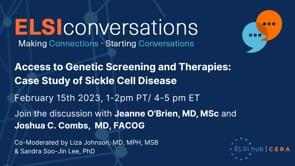
ELSIconversations 3: ELSIcon2022 - ELSIconversations ELSICon2022: Access to Genetic Screening and Therapies: Case Study of Sickle Cell Disease
-
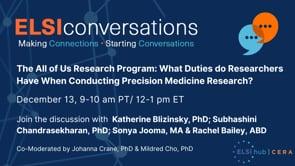
ELSIconversations 3: ELSIcon2022 - ELSIconversations ELSICon2022: The All of Us Research Program: What Duties do Researchers Have When Conducting Precision Medicine Research?
-
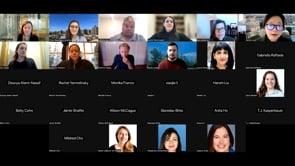
ELSIconversations 3: ELSIcon2022 - ELSIconversations ELSICon2022: Stakeholder Perspectives on Data Sharing and Privacy
-
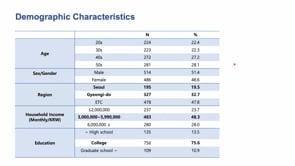
ELSIconversations 3: ELSIcon2022 - A Survey on Public Perception toward the Korean National Bio Big Data Project
-
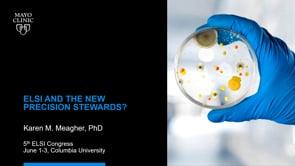
ELSIconversations 3: ELSIcon2022 - ELSI and the New Precision Stewards?
-
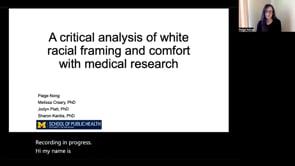
ELSIconversations 3: ELSIcon2022 - White racial framing and comfort with medical research: a critical analysis

